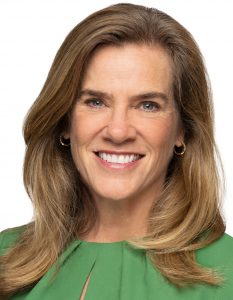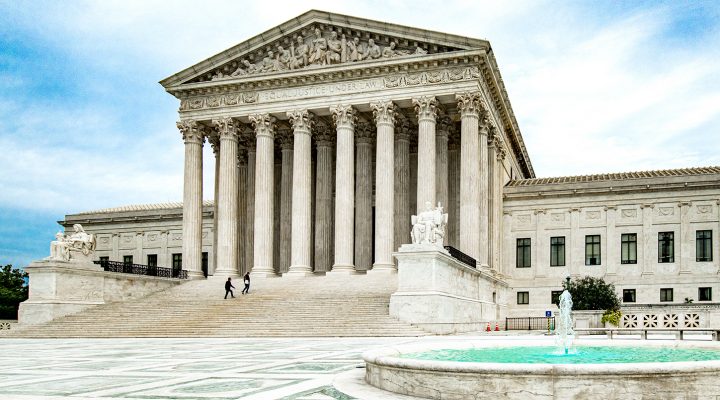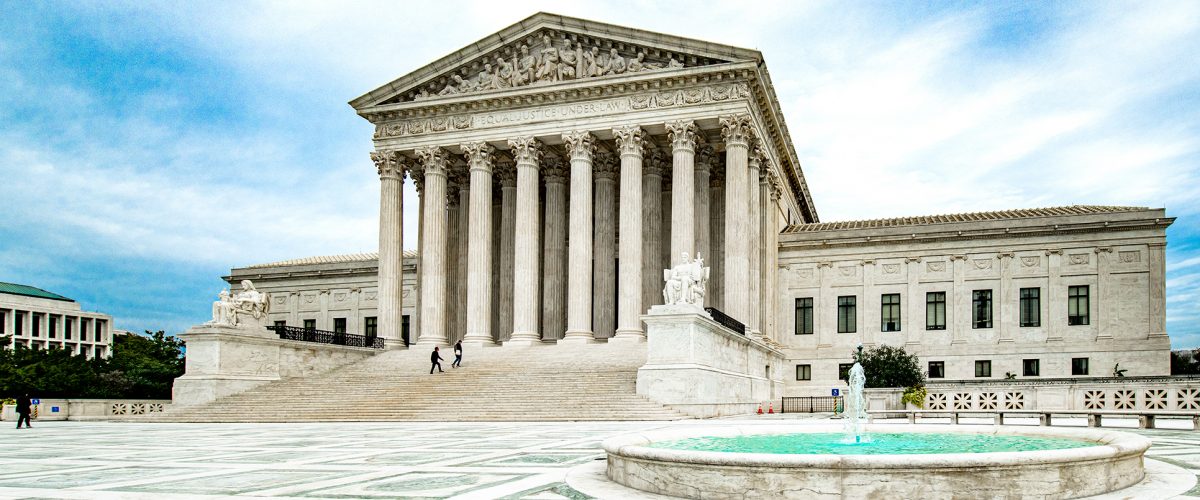If you want to read one U.S. Supreme Court opinion from the past term that doesn’t risk raising your blood pressure, I suggest Groff v. DeJoy.
Plenty of the court’s decisions display deep divisions among the justices — divisions that both reflect and exacerbate America’s political problems. That holds true for several decisions that address religion in recent years. But not this one.
The court’s decision on workplace religious accommodations is good news for understanding the place of religion in the law and in our diverse society.

Holly Hollman
Groff v. DeJoy is a unanimous decision, written by Justice Samuel Alito in a refreshingly matter-of-fact tone. It clarifies the obligation of employers to provide reasonable accommodations for religious needs in the workplace unless doing so would place an undue hardship on the business. The court revisited Trans World Airlines, Inc. v. Hardison, a 1977 opinion applying a federal statute that prohibits employment discrimination: Title VII of the Civil Rights Act.
In Groff, the court explicitly disapproved part of the Hardison decision that had undercut the force of the statute’s employee protections for decades.
The decision was welcome news for Gerald Groff, the former part-time mail carrier who was unwilling to work on his sabbath. He lost his job after the U.S. Postal Service began delivering packages for Amazon on Sundays. He sued and lost in the courts below. His case will now be reconsidered under the decision’s clarified standard for workplace religious accommodations.
BJC filed a friend-of-the-court brief on the side of Groff, joining the National Association of Evangelicals, the Ethics and Religious Liberty Commission of the Southern Baptist Convention, the U.S. Conference of Catholic Bishops, the Church of Jesus Christ of Latter-day Saints, and ADL on the brief.
The Groff decision bolsters an essential part of our country’s civil rights commitment. Title VII is intended to ensure equal opportunities for workers without regard to protected categories, such as sex (including sexual orientation and gender identity), national origin, race and religion. Its language recognizes that preventing discrimination based on religion sometimes requires making accommodations for religious practices, such as wearing certain religious garb and taking time off for the recognition of holy days. It also takes into account that not all requests can or must be accommodated. But both courts and employers complying with court decisions often focused on the “minimis” language in Hardison to avoid the plain legal obligation of the Title VII statute.
Hardison was particularly harmful for religious minorities, who disproportionately claim the need for workplace religious accommodations. The Groff decision corrects that problem, and it does so in a way that held the entire court together and should improve the way we navigate religion in the workplace.
The court did not overrule the Hardison decision in the Groff decision. Specifically, it did not overrule its central holding that Title VII’s protections for religion do not require an employer to deprive other employees of seniority rights under a collective bargaining agreement. But, after a thorough examination of the Hardison decision and the dissenting opinion of Justice Thurgood Marshall in that case, the court rejected the idea that employers could escape the demands of the statute by showing that an accommodation simply had more than a de minimis cost on the employer.
Instead, this court reaffirmed that the statutory language of “undue hardship” means what it says. Other parts of the Hardison opinion suggest that as well. It’s the kind of burden that is “substantial in the overall context of an employer’s business.”
The Groff decision clarifies that employers must interpret “undue hardship” in the context of the particular accommodations at issue and the practical impact, which includes size and operating cost of the employer. It’s crafted to provide a fairer reading of the Title VII statute, while trying not to disrupt too much existing case law and guidance from the Equal Employment Opportunity Commission.
“The fact that an employee may claim the need to share faith in ways that are unwanted and disruptive in the workplace can arise with or without this decision.”
Because of the trajectory of the court’s conservative majority on church-state issues, some religious freedom advocates worry the Groff decision means greater opportunities for some employees to impose their religion on others in the workplace. Of course, we can’t predict all future cases or bad decisions, but we should not fail to applaud a good one. The fact that an employee may claim the need to share faith in ways that are unwanted and disruptive in the workplace can arise with or without this decision. That doesn’t mean an employee will win or that the Hardison standard should not have been reviewed.
The Groff decision explains in clear terms how religion is privileged under the statute but not necessarily to the detriment of others. As both parties in the case agreed, and the court recognizes, defining “undue hardship” includes consideration of impacts on coworkers that affect the “conduct of the business.”
To be clear, “a coworker’s dislike of ‘religious practice and expression in the workplace’ or ‘the mere fact (of) an accommodation’ is not ‘cognizable to factor in the undue hardship inquiry.’”
Bias or hostility doesn’t count. Employers must reasonably accommodate an employee’s practice of religion, not just assume it is too difficult.
Protecting religious freedom for all has long been a strength of our nation, although it requires each generation to renew the commitment and continue working to uphold the core values in that constitutional promise.
Worries abound about the current court’s focus on the free exercise of religion while disregarding principles that protect against any establishment of religion by the government — another way our Constitution protects religious freedom. But with Groff, it’s heartening to see all nine Supreme Court justices come together across ideological differences to clarify the proper reading of a statute that sensibly protects religion in the workplace.
Holly Hollman serves as general counsel and associate executive director at BJC.
Related articles:
High court unanimously seeks a compromise on religious accommodation in the workplace
High court hears arguments in case that could redefine employers’ required religious accommodation
Broad coalition of religious liberty groups sides with former postal employee


